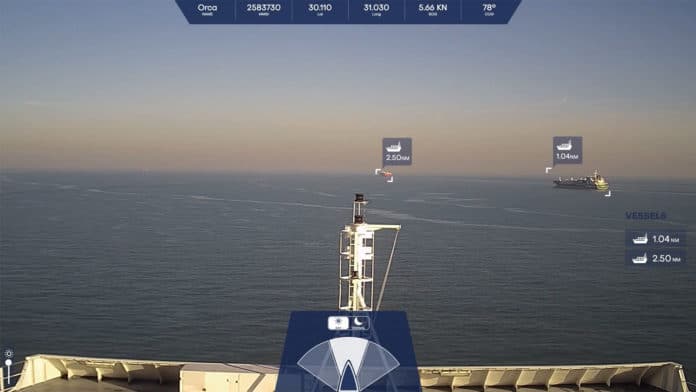Efforts continue to explore the use of automation, artificial intelligence, and image recognition to improve the navigation and safety of ship operations.
Recently, maritime platform developer Orca AI announced a partnership with Nippon Yusen Kabushiki Kaisha (NYK Line), a Japanese shipping and logistic company, to test its safety system for autonomous ships. Orca AI’s Automatic Ship Target Recognition System has been installed onto an NYK Group ship for research on the future of autonomous operations within the maritime industry. The objective is to verify whether the safety of the ship’s operation can be improved by automating the task of recognizing dangerous objects.
Orca’s AI navigation and collision avoidance system will help create a new lookout support system for vessels by providing improved visibility in difficult conditions, preventing human error, and helping crews make informed decisions. Working with Orca, NYK also plans to improve the target detection algorithm through the use of data collection and learning on the Israeli company’s servers.
Orca AI notes that around 4,000 marine accidents occur annually and are caused by low situational awareness in congested areas, lack of office visibility regarding misses and risk patterns, and insufficient data available for handling potential incidents.’ Currently, human navigators use binoculars to visually recognize any dangerous objects at sea while sailing.
This trial will assess the system’s ability to automatically recognize dangerous targets and other vessels that may be overlooked by the human eye, especially at night and in congested waters. It does so by using vision sensors and Thermal cameras, as well as AI-powered algorithms that constantly analyze the environment at sea and alert crew to dangerous situations.
The camera unit will shoot day and night to automatically recognize ships and targets and measure the distance to them. Information obtained from navigational equipment, including vessel names, distance, and time when the ship is closest to the target, can be superimposed and displayed in an integrated manner to a tablet or touch-panel monitor display.
In addition, the technology can independently recognize small fishing boats and small markers that are not captured by radar and not equipped with AIS. It measures the distance to these targets and notifies the person on duty of the danger of collision.
“The challenges faced by the maritime industry are numerous, and there is a continual need to make shipping safer, to sustain trade and protect the maritime environment,” says Mr. Yarden Gross, CEO, and co-founder of Orca AI, in a press release. “By adopting an Automatic Ship Target Recognition System and embracing technology, we can create a connected maritime industry that is able to protect crew and cargo by identifying risks straight away. We’re delighted to be working closely with Nippon Yusen Kabushiki Kaisha in discovering what lies ahead and bringing the industry one step closer to fully autonomous ships.”
The trial will verify detection capability and contribution to lookout work, improve the target detection algorithm through data collection and machine learning, and enhance the recognition rate.
